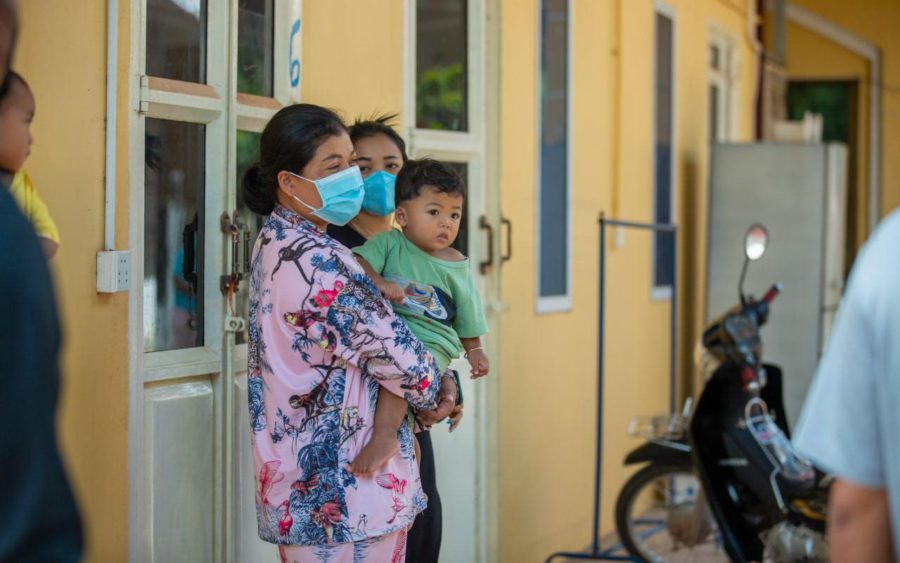Siem Reap officials say they are seeing a drop in Covid-19 cases in the city after 10 days of red-zones in some communes and villages, while working to meet food shortages amid restrictions.
The province announced the designation of red zones on September 17, placing four entire communes and one village each in two other communes under strict lockdown restrictions. A week later, the province left a smaller number of villages from the six communes as red zones but added one village from a seventh commune.
All other communes in Siem Reap city are classified orange zones.
Ly Samrith, deputy Siem Reap provincial governor, said on Monday that there was a reduction in red zones but that officials were strictly preventing people’s movements to minimize further transmissions of Covid-19.
There were food shortages, and officials had distributed between 50 to 60 tons of food items and essential items, he said.
Samrith added that the distributed food was probably not meeting demand.
Officials had also impounded vehicles used by people breaking lockdown rules and were made to pay $500 fines. He said people were more compliant with the restriction now than during the first week of lockdown.
“People can drive through Siem Reap province only if they have a mission order,” he said.
The city also has a 9 p.m. to 3 a.m. curfew in place. Red zones restriction in Phnom Penh in April and May caused massive disruptions, food shortages and loss of income for the capital’s vulnerable communities and residents.
Tith Dyra, commune chief for Kokchak, said villages in the commune without new cases had been downgraded to orange zones. But those that continued to see new cases remained as red zones, though they were seeing fewer daily cases, Dyra said.
“In the four red zones, before we would find 10 to 20 people, but now it has decreased to four to five people a day,” he said.
People were prevented from traveling from orange to red zones and that families in need, including those identified as IDPoor, were being provided food assistance of 10 kilograms of rice, he said. Orange zone residents were allowed to buy food but only two times a week.
Khiev Sorn, commune chief for Slakram, said that people were facing food shortages but that contributions from NGOs and local donations had been used to help residents.
Slakram commune police chief Sor Sanara said police officials had tried to prevent residents from buying vegetables behind the Slakram market, but 186 people were tested after violations. Ten people tested positive. Villages were now being guarded by security personnel, he added.
Officials were now looking at a potential outbreak at Wat Polanka where one monk and cook had tested positive, Sanara said.
Su Vandeth, Svay Dangkum commune police chief, said five villages were still designated as red zones in the commune. Cases in the commune had been linked to the Slakram market outbreak, he said.
“I was speechless at the seriousness of Covid-19, where it sent one person to the hospital, while others were treated at quarantine centers. But now it has reduced. We have cut it off.”
Mey Liza, a resident of Sala Kamroeuk commune, said during the first week of lockdown, authorities completely prevented people from leaving their homes, not even to buy food.
“The roads were quiet. We couldn’t go to buy food. Since my house is far from the market, it was hard for me,” she said. “For my neighbors, who are vendors, it is really difficult for them as they cannot sell anything.”













